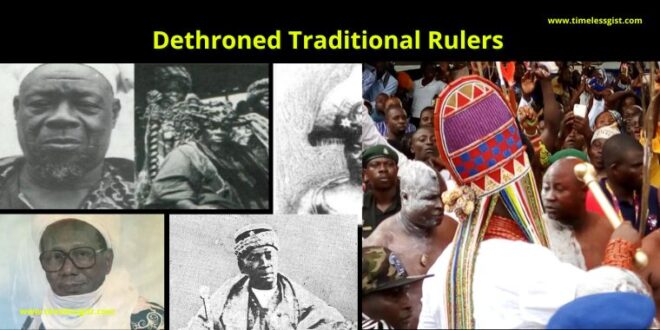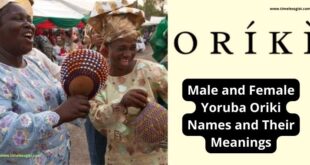In this article, I will take you through the top 21 Dethroned Traditional Rulers in Nigerian History. The announcement of the removal of Sanusi Lamido Sanusi II, the greatly respected Emir of Kano and former Central Bank President, by the Kano State government led by Governor Ganduje, came as a surprising and unsettling development to numerous individuals, especially his supporters. It serves as another noteworthy event in history that will serve as a lasting reminder of the role of traditional rulers in Nigerian politics and its various aspects.
This event also marks another chapter in the Nigerian historical narrative, serving as a poignant reminder of the recurring instances where kings in Nigeria have been deposed by governing authorities during disputes. It’s an opportune moment to reflect on the fact that many Nigerian monarchs have faced removal, deposition, or dethronement from their positions for various reasons.
The reasons for such dethronements often encompass conflicts with the reigning government, which frequently culminate in official announcements of dethronement. Some monarchs have resorted to self-imposed exile to evade potential abductions, while others have faced removal through court injunctions, which ultimately mandate the relinquishing of their throne.
Also read: Top 10 Most Popular Markets in Oyo State
Also read: Top 10 Most Popular Markets in OSun State
Occasionally, dethronement can stem from uprisings and rebellions among a monarch’s subjects due to dissatisfaction with their rule or accusations of wrongdoing and misconduct. Therefore, which Nigerian kings have experienced forced removal from their thrones, contrary to their desires?
20 Kings that have been dethroned in Nigeria
1. Ooni of Ife – Ogboru:
Ogboru is 19th century Ooni of Ife dethroned mischievously by Ife Palace Chiefs who got tired of his 70yrs long reign. He was deceived by trick to come out of his place to come and see something at the Atiba square of the ancient Ile-Ife town and wasn’t allowed to return to the palace again. He angrily left for another aboard where he founded a little town called Ife-Odan and he settled there. Successive Ooni of Ife like 6 installed after him died in succession under 6months like a sort of throne bewitchment and Ife Chiefs had to search for him at Ife Odan to return back, but he resisted the attempt and gave them his daughter Moropo to make some sacrifices at the palace after which his son Giessi became the next Ooni after him.
Also read: Top 10 Most Popular Markets in Lagos State
2. Oba of Benin Ovoranwen Nogbaisi (1888 – 1897):
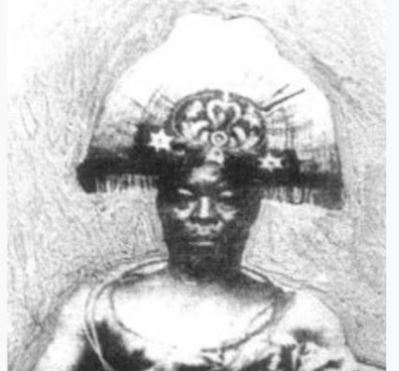
He was deposed by the British government in 1897 for monopolizing forms of trade which the British government under Vice Consul Phillips Roberts finds displeasing, hence rooted for his displacement. The Consult tried to evade the Oba’s palace but was stopped by palace’s emissaries who ambushed and killed the two British errands sent. This lead to a military operation under Harry Hawson and Benin City was destroyed and the palace was heavily looted. The Oba was to be hanged but was lucky to escape after his dethronement was announced and was sent on exile in Calabar small town called Essien, where he died in 1914.
Also read: History, Culture, And People of Owo Town
3. Emir of Bauchi – Umar Mohammed:
Mohammed was deposed on 16th of February, 1902 by Lord luggard’s second in command – William Wallace for an allegation of slave dealings and insubordination against the British government and misrule of his people. His son was installed as the new Emir.
4. Emir of Kano Aliyu Ibn Abdullahi Maje Karofi:
He became the Emir of Kano in 1894 following the death of Emir Muhammad Bello, and a rebellion war of “Bassa” called the 3rd Kano Civil War was kickstarted by him, along with his elder brother, Yusuf when the Sultan of Sokoko announced another prince called Tukur as the new Emir of Kano. The war lasted for a year when Aliyu popularly called the Sango of zaki (the gun runner) or Ali Balads, for his heavy use of explosives in most wars conquered Kano and became the Emir in 1894. He was dethroned in 1903 following an homage visit to the Sultan in Sokoto when the British -French forces attacked Kano and brought an end to his reign. He first exiled to Yola and later Lokoja, the seat of new Northern Nigerian government where he died in 1926.
5. Emir of Ningi – Dan yaya:
Dan yaya was deposed by British Temple months after Umar Emir of Bauchi was sent away in July 1902, for terrorizing his people leading to the killing of a mallam, and taking sides with Emir of Bauchi. A new Sarkin Ningi was enthroned who was the heir, by the name Mammadu. Dan yaya escaped to bura town where he was eventually killed by the Bura people for his continued terrorizing acts in 1905.
Also read: Top 100 Yoruba Slangs in Nigeria and their Meanings
6. Olu of Warri – Erejuwa I:
Erejuwa was the traditional ruler of Itsekiri at two different times between 1951-1964 and 1966 – 1989. A Senior Officer with UAC before becoming a king, was unfortunately removed and deposed by NCNC eastern party in 1964, because of his support for Awolowo’s Action group, which is the party of many Prominent Itsekiris. The result of the political rivalry lead to the creation of Midwestern States then. Erejuwa was exiled to a town called Ogbesse, after he was returned by a military government of David Ejoor in 1966 and he reigned till 1989.
7. Alaafin of Oyo – Oba Adediran Adeyemi II:
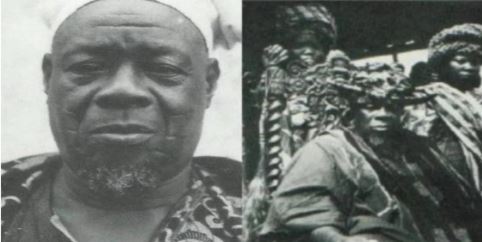
84yrs old Oba Adediran Adeyemi II (the father of the present Alaafin of Oyo, Oba Lamidi Adeyemi) was dethroned for political rivalry with Chief Awolowo lead Western government of Nigeria when he gave his political will and support for an opposition party called NCNC lead by Chief Nnamdi Azikwe which was heightened by a disagreement and conflict with the then Awolowo Action group leader, Bode Thomas. Oba Adediran was sent away from Oyo town in July 1955 and was exiled in Lagos where he was housed by Alhaji N.B Soule a wealthy NCNC member , after which Gbadegesin Ladigbolu was enthroned as the new Alaafin of Oyo till 1970.
Also read: 1000+ Igbo Names and Their Meanings
Also read: 90+ Cultural Igbo Names and their Meanings
8. Timi of Ede – Abibu Lagunju:
Timi Abibu Languju was acclaimed to be the first muslim Yoruba king in history who reigned between 1855 to 1892 and was deposed and exiled by the British government to Ibadan where he lived with Sunmonu Apampa, the Asipa of Ibadan at that time and he died in 1900. One of his children Raji Lagunju, birthed by an Ile-Ife wife was taken back to her home town, to become the second Chief Imam of Ile-Ife. Read more about the accounts of Timi Lagunju here.
9. Awujale of Ijebu-Ode Oba Adenuga 1892 -1925:
Awujale Adenuga Folagbade was made an Awujale of Ijebu Ode on November, 1925. He was 33yrs and was living with his mother in Igbeba, a small village near Ijebu Ode. He was the choice of the “Odi”, (Ijebu kingmakers) for the Tunwase ruling house but his choice didn’t go down well with some local chiefs who felt he was too young and prematurely for the exalted stool. He was eventually deposed in 1929 and exiled to Ilorin, for corruption around forestry fees and influencing the choice of the selection of Oba Onipe of IBU. Oba Ogunnaike succeeded him who also died in 1933.
10. Akarigbo of Remo – Oyebajo:
Oba Oyebajo was the traditional head of Ijebu remo, in his mid twenties and reigned between 1811 to 1915. He was deposed by the British for being a de-facto ruler who refused to regard his principal chiefs (Bademowo – The Lisa of Remo & Awofala, the Losi of and denied them their shared parts of the duly entitled stipends to them, as part of 1914 amalgamation rule that local rulers should be part of native courts. Akarigbo Chief levied many allegations of corruption against him and the British Officer in charge of the Administrative district, H.F Ducoumbe not only deposed him but also sentenced him and two others in prison with hard labour at Ijebu Ode and was released 6months later, after which he later settled in Sagamu.
Also read: 200+ Cultural Female Yoruba Names and their Meanings
Alase of Remo, High Chief Awolesi was made the new Akarigbo in a flamboyant coronation ceremony attended by the British Officer, Ducoumbe. Awolesi died shortly on 25th of February 1916 and the British made Oba Oyebayo’s clerk and an educated public writer the new Akarigbo of Remo. With increased disturbances of Oyebajo factions for his reinstatement, he was arrested with another supporter called Ali and banished to Calabar in 1918 where he lived for only just 3months. Ali died in 1922 after his plea of clemency was rejected the Governor. See accounts of Tunde Oduwobi: The careers of Akarigbo Oyebajo and Awujale Adenuga under the British government.
Also read: 700+ Yoruba Names and Their Meanings
11. Osemawe of Ondo – Oba Adekolurejo Jimosun II (Otutubiosun):
The Oba whose reign was from 1918 to 1925 was removed and banished to Ile-Ife in 1925, where he lived and died. It was during the reign of Oba Jimosun that Ondo town had its first secondary school, called Ondo boys high school.
12. Osemawe of Ondo – Oba Adenuga Fidipote II:
Oba Adenuga was reported to be a wealthy king of Ondo town and was on record to be the one who built the first modern Palace for ondo town. He reigned for 7yrs after which his deposed and chased him away from the town to Ibadan in 1942.
13. Oba of Lagos – Ibikunle Akintoye & Kosoko:
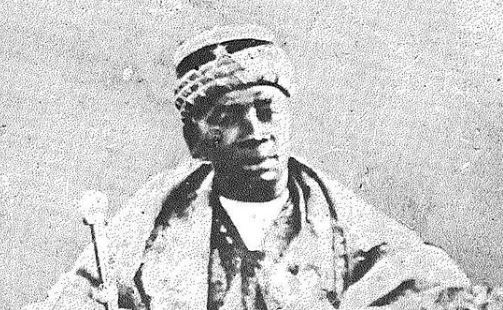
Akintoye reigned twice as Oba of Lagos, first between 1841 to 1845, when he was deposed to Badagry town for his Anti-Slave trade advocacy. He was succeeded by Oba Kosoko who was equally deposed for having a rift with the British government when he resisted submitting Lagos colony to the British and ordered, the British government to meet the Oba of Benin. In retaliation for his gut, the British government brought back Ibikunle Akintoye who had been on exile in Egba and Badagry in 1851. He reigned for the second time till September, 1853 when he died and Oba Dosumu took over. The deposed was later recalled back to Lagos, where he was made an high chief Oloja of Eleko, a salaried title in Oshodi tapa Epetedo. Where he lived and died in 1872.
Also read: Olojo Festival – History of ILE IFE and Celebration of Olojo – Research
14. Emir of Gwandu – Mustapha Jokolo:
The Ex -Emir was deposed in 2005, by the Kebbi State government following different allegations levied against him by his Chiefs and was exiled to Kaduna. He was immediately replaced by June 2005 by one Muhammadu Illyasu Bashar, a retired major, who served as a military governor in the old Gongola State between 1976 & 1978. 15yrs, deposed Jokolo is still challenging his dethronement in Court.
15. Emir of Kano – SIR Mohammodu Sanusi I:
Reported to be a powerful Emir of Influence in the colonial days of Northern Nigeria, Sanusi I was the Emir of Kano between 1954 to April 1963, when he was deposed by Alhaji Ahmadu Bello, a distant cousin, after an allegation of financial misappropriation in the emirate. He was deposed to Azare in 1964 and died in Wudil in years after. Sanusi I is the grandfather of Sanusi Lamido Sanusi, the recently deposed by Emir of Kano who reigned from 2014 to 2020, in a similar instance as his grandfather.
16. Olofa of Offa – Oba Wuraola Isioye:
Oba Isioye was enthroned on the 5th January 1957, and reigned as Offa District head for 2yrs, when he was deposed by Northern Regional Government following, a successful move for Offa Local Court to be recognised and the long used Ilorin’s Alkali Court was abolished. This promoted the Late Saurduna to instigate him being deposed and exiled to Ogbomoso- Kogi Area, where he lived till he returned in 1964. He was reinstated as Olofa till he died in 1969, even though his district title wasn’t returned.
17. Sultan of Sokoto – Ibrahim Dasuki:
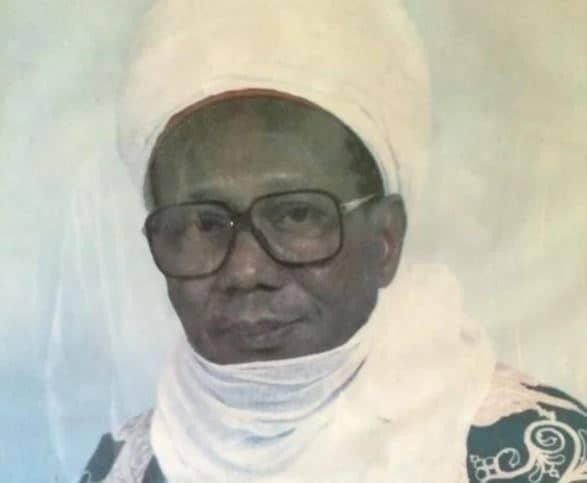
The dethronement of Late Sultan Dasuki is probably the most widely reported case of removal of a king in Nigeria by the military government of Abacha in 1996, as almost everyone in late 20’s in Nigeria are aware of the development. There were even songs recorded by musicians to that effect on the continued change of traditions, that the usually saying that a new king can not be crowned while another is alive “T’oba kan o Ku, Oba kan o je”, as waxed by Yoruba Fuji Singer Abbass Obesere. Ibrahim Dasuki removal was rumoured to be related to issues between him and Abacha, on mismanagement of the late Abacha’s relative’s properties. There were also speculation that it was due to reports of his modernist style of rulership and many preferred Sultan Maccido, who later succeeded him.
Also read: History and video of Oba Oyekan of Lagos coronation in 1965
18. Olowo of Owo – Oba Olateru Olagbegi II:
Unarguably the richest and most influential Olowo of Owo town in Ondo state, Oba Olateru became Olowo in 1941 and reigned till 1966 when he took side with Chief S.L Akintola against Chief Awolowo who was his ally. Of a fact, Awolowo Action Group party was founded right inside Olowo palace and Owo for years experienced political and kingship battle, which came to a climax in 1966 following a cold blooded coup with many properties and lives lost in the course. The people of Owo revolted their King and sent him away on exile where he lived for another 27yrs, and his stool was taken over by Oba Ogunoye. At the demise of Ogunoye, Olateru was reappointed as the new Olowo of Owo in 1993 and spent another 5yrs on the throne till he died in 1998. His eldest son, took over from him in 1999 and reigned for 20yrs.
19. Deji of Akure – Oba Oluwadamilare Adesina Osupa III:
The inglorious exit of Oba Oluwadamilare as Paramount king of Akure is another reminder of the importance of carriage and conduct in kingship, as they are seen as leaders and role models. The king was deposed on 10th of June, 2010 following the beating of his estranged wife at her home in Akure, in what the Ondo state government referred to as, a dishonorable, condemnable and disgraceful conduct unexpected of a king which invoked a section of the state chieftaincy law of 1984 as amended. With an immediate action, a new Deji of Akure Adebiyi Adeshida Afunbiowo II was announced on 13th of August 2010.
20. Oba Awujale Sikiru Adetona:
was deposed in 1981 after suspension by a panel of inquiry set up by the then Ogun state governor, Olabisi Onabanjo after which he was found guilty of the charge. He was luckily reinstated by Col. Diya, following a military coup. Read more on Onigegewura’s blog.
21. Onojie of Uromi Kingdom:
Anslem Aidenojie was suspended and later dethroned in 2016 by Former Gov. Adams Oshiomole for abusing a woman and total disregard for constituted authority, for failure to apologize within 2weeks he was given. Gov Obaseki however reinstated the former king in 2018.
Also read: Top 15 Richest Pastors in Nigeria
